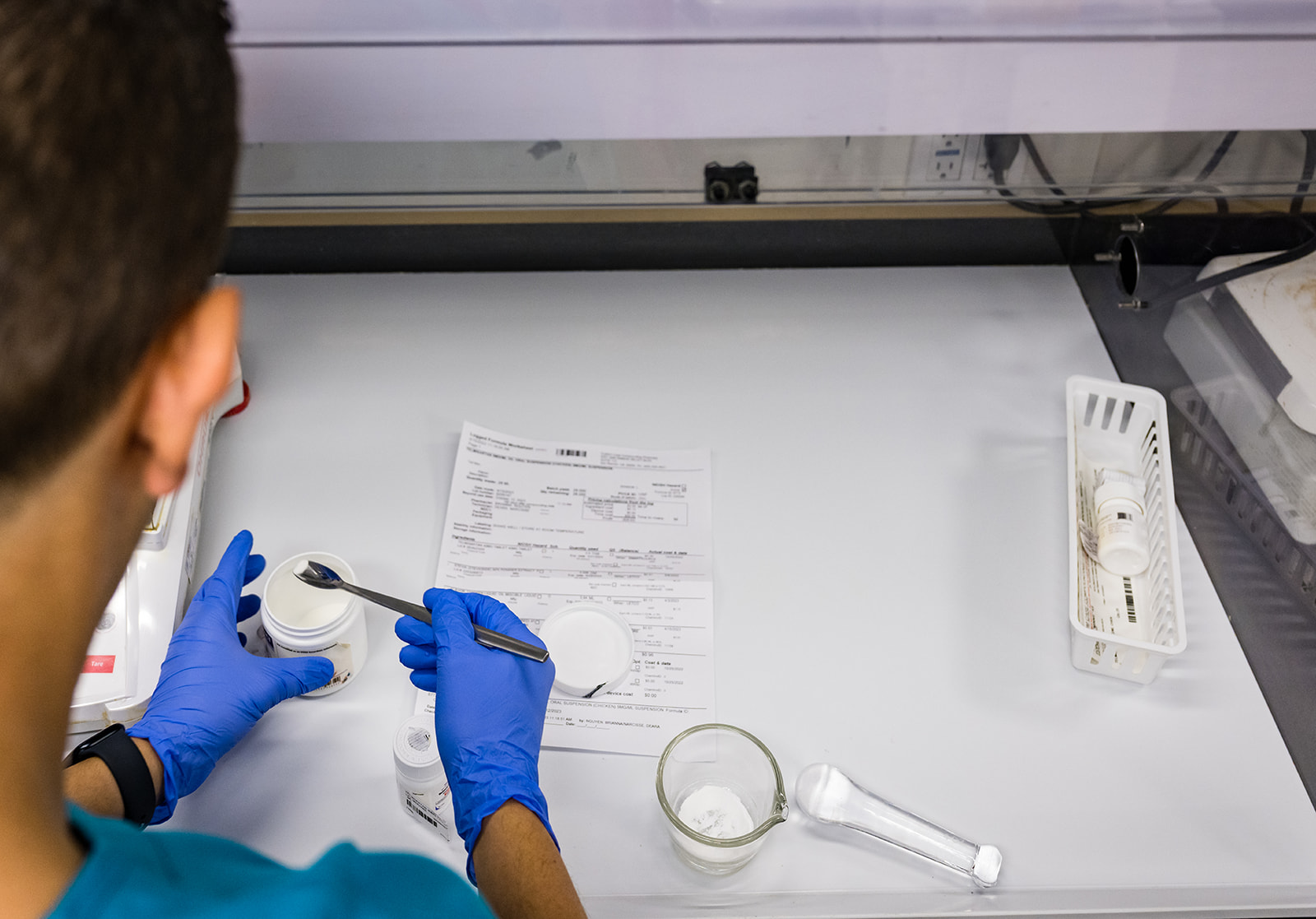-
2551 San Ramon Valley Blvd, Suite 112 San Ramon, CA 94583
- 925.830.4631
- 925.830.0125

Gastrointestinal (GI) issues are a common concern for many patients, affecting millions worldwide. Conditions such as Irritable Bowel Syndrome (IBS), Crohn’s disease, and Ulcerative Colitis can significantly impact quality of life, causing symptoms like chronic pain, bloating, diarrhea, and constipation. Traditional treatments often provide limited relief and can come with unwanted side effects. As a result, patients and healthcare providers are increasingly looking for alternative therapies that offer more effective and personalized solutions.
One promising alternative is compounded medications. Compounding allows pharmacists to create customized medications tailored to the unique needs of each patient. This approach can be especially beneficial for those with GI issues, as it enables the formulation of medications that are better tolerated and more effective than standard treatments. Compounded medications can be adjusted in terms of dosage, form, and combination of active ingredients, providing a more targeted approach to managing GI symptoms.
Among the various compounded medications, Low Dose Naltrexone (LDN) has emerged as a potential game-changer for patients with GI issues. Originally developed to treat opioid addiction at higher doses, naltrexone has been found to have unique immunomodulatory and anti-inflammatory effects at lower doses. These properties make LDN a promising option for managing autoimmune and inflammatory conditions, including those affecting the gastrointestinal tract.
Research into the use of LDN for GI issues is still in its early stages, but the results are encouraging. Several studies have shown that LDN can help reduce inflammation and improve symptoms in patients with Crohn’s disease and Ulcerative Colitis. For instance, a study published in the *American Journal of Gastroenterology* found that 67% of Crohn’s disease patients experienced a significant improvement in symptoms after using LDN for 12 weeks . Another study reported that 88% of patients with Ulcerative Colitis responded positively to LDN treatment .
The exact mechanism by which LDN exerts its effects is not yet fully understood, but it is believed to involve the modulation of the body’s immune response. At low doses, naltrexone temporarily blocks opioid receptors, leading to a rebound effect that enhances the production of endorphins and enkephalins. These naturally occurring peptides play a crucial role in regulating the immune system and reducing inflammation. By modulating the immune response, LDN may help alleviate the chronic inflammation that underlies many GI disorders.
One of the key advantages of using compounded LDN for GI issues is its favorable safety profile. Unlike traditional immunosuppressive drugs, LDN is well-tolerated and has minimal side effects. This makes it a viable long-term treatment option for patients seeking to manage their symptoms without the risk of severe adverse effects. Additionally, compounding pharmacies can tailor the dosage and form of LDN to meet the specific needs of each patient, further enhancing its therapeutic potential.
In addition to LDN, other compounded medications can also play a role in managing GI issues. For example, probiotics, digestive enzymes, and anti-inflammatory agents can be combined in a single formulation to provide comprehensive support for gut health. Compounding allows for the creation of personalized treatment plans that address the underlying causes of GI symptoms, rather than just masking them.
As the field of compounded medications continues to evolve, it is likely that new and innovative treatments will emerge, offering hope to patients with chronic GI issues. Low Dose Naltrexone represents a promising step forward in this regard, providing a safe and effective option for those who have not found relief with conventional therapies. By working closely with compounding pharmacies, healthcare providers can develop customized treatment plans that offer real relief and improve the quality of life for their patients.
For those struggling with gastrointestinal issues, compounded medications like LDN offer a beacon of hope. As research continues to uncover the full potential of these treatments, patients and providers alike can look forward to more effective and personalized solutions for managing GI health.
—
**References:**
1. Smith, J. P., Stock, H., Bingaman, S., Mauger, D. T., Rogosnitzky, M., & Zagon, I. S. (2013). Low-dose naltrexone therapy improves active Crohn’s disease. *American Journal of Gastroenterology*, 108(3), 373-379.
2. Lie, M. R. K., van der Giessen, J., Jansen, L. A., Peppelenbosch, M. P., & van der Ent, C. (2018). Low dose naltrexone for induction of remission in inflammatory bowel disease patients. *European Journal of Gastroenterology & Hepatology*, 30(4), 472-477.
The content provided on this blog is for informational purposes only and should not be considered medical advice. Always consult with your physician regarding any questions or concerns you may have about your health.

